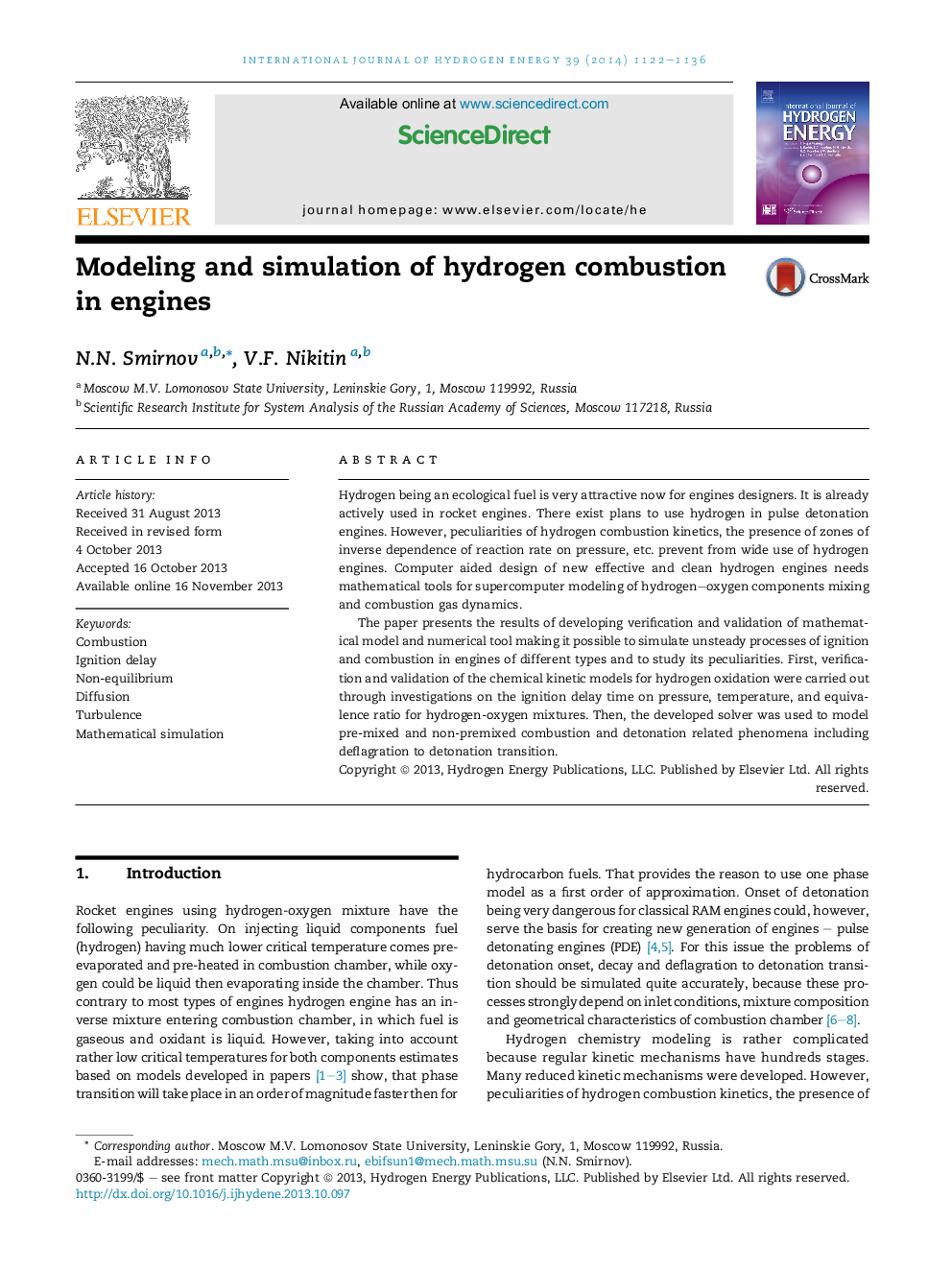| Article ID | Journal | Published Year | Pages | File Type |
|---|---|---|---|---|
| 1276559 | International Journal of Hydrogen Energy | 2014 | 15 Pages |
•Behavior of ignition delay for hydrogen-oxygen mixtures was validated.•Detonation initiation, degeneration and reestablishing were simulated numerically.•Peculiarities of deflagration to detonation transition were resolved.
Hydrogen being an ecological fuel is very attractive now for engines designers. It is already actively used in rocket engines. There exist plans to use hydrogen in pulse detonation engines. However, peculiarities of hydrogen combustion kinetics, the presence of zones of inverse dependence of reaction rate on pressure, etc. prevent from wide use of hydrogen engines. Computer aided design of new effective and clean hydrogen engines needs mathematical tools for supercomputer modeling of hydrogen–oxygen components mixing and combustion gas dynamics.The paper presents the results of developing verification and validation of mathematical model and numerical tool making it possible to simulate unsteady processes of ignition and combustion in engines of different types and to study its peculiarities. First, verification and validation of the chemical kinetic models for hydrogen oxidation were carried out through investigations on the ignition delay time on pressure, temperature, and equivalence ratio for hydrogen-oxygen mixtures. Then, the developed solver was used to model pre-mixed and non-premixed combustion and detonation related phenomena including deflagration to detonation transition.
